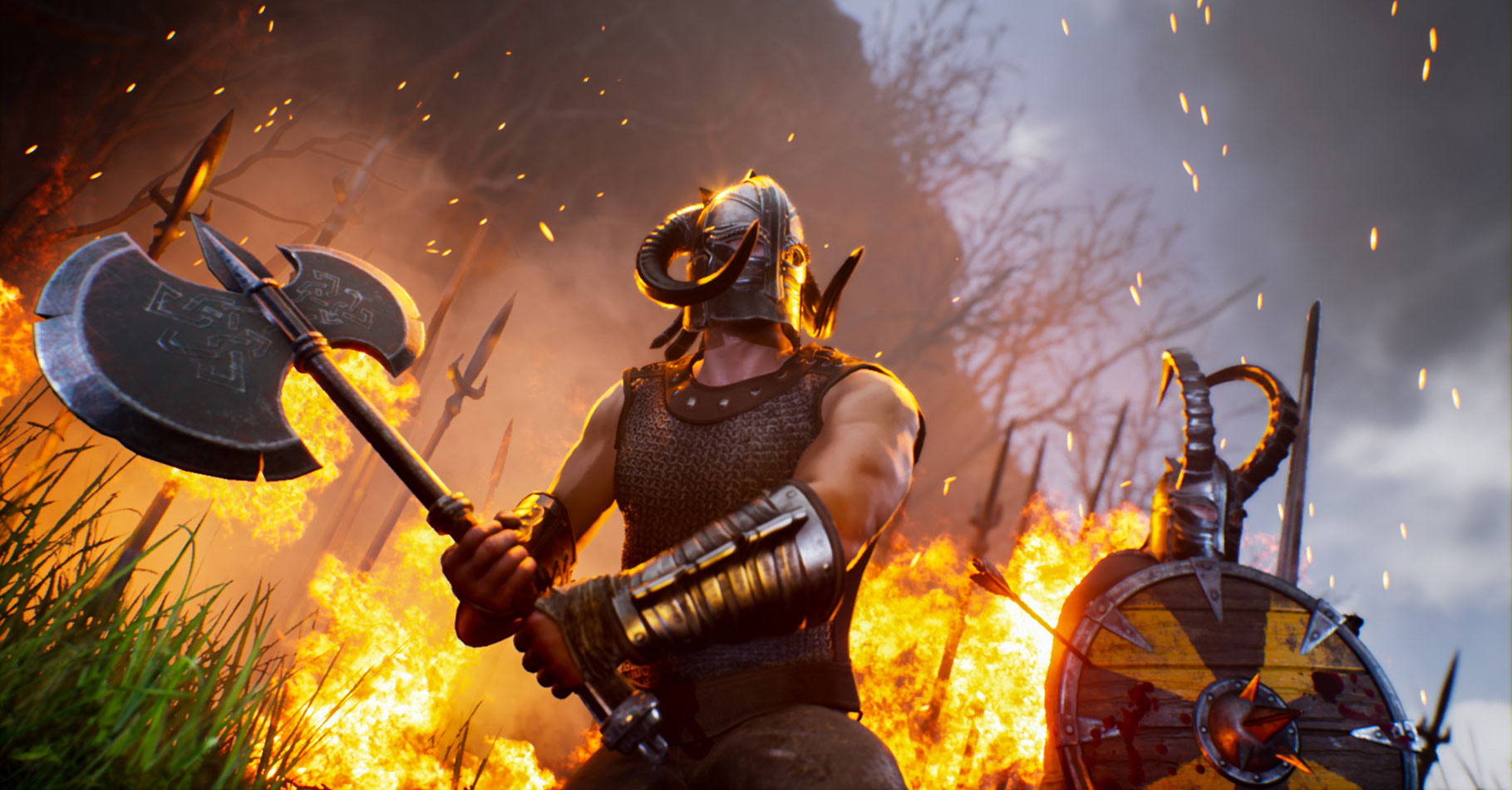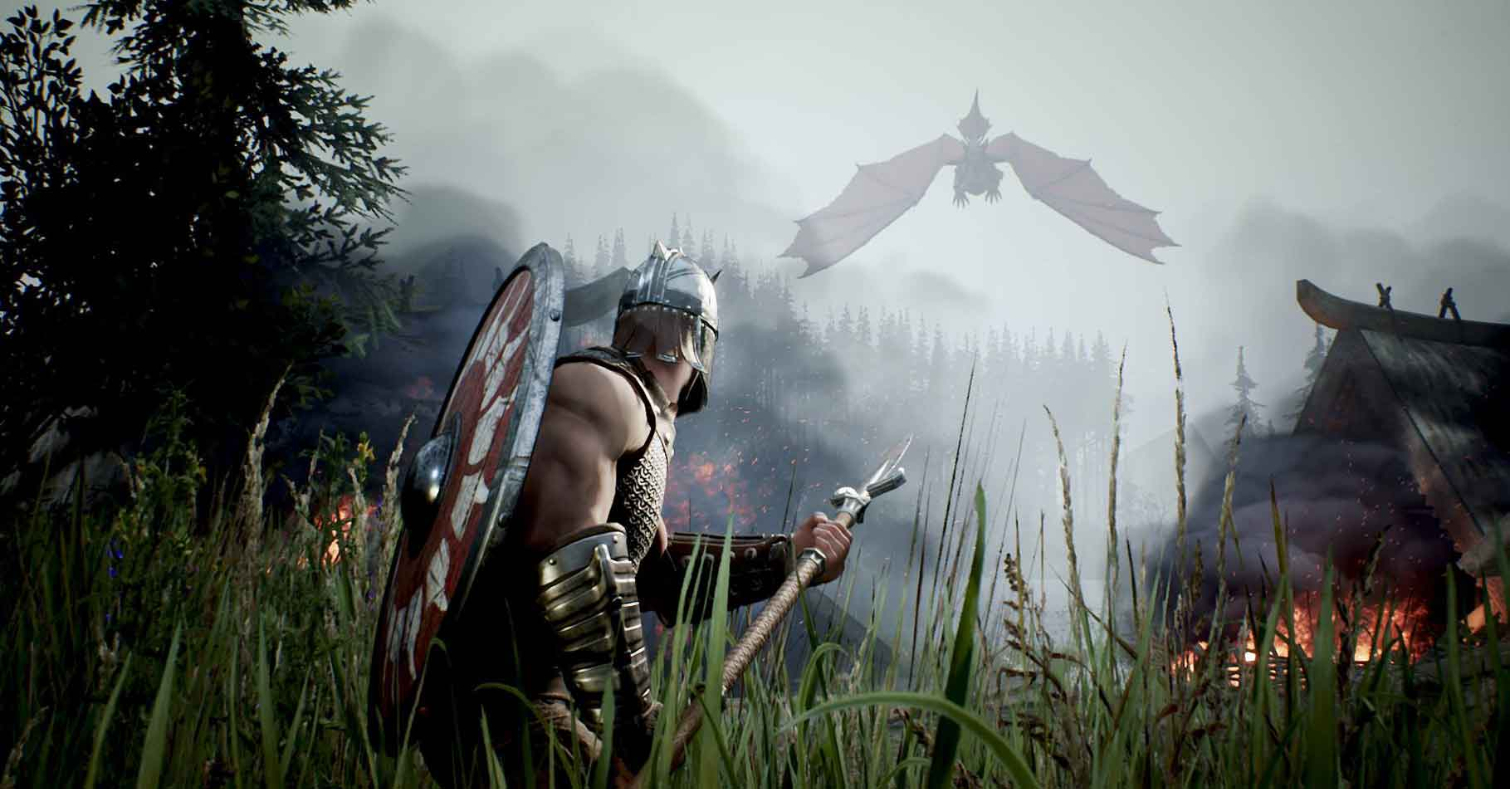Rune Blends Skyrim With Norse Mythology
If you want a solid adventure with a hefty dose of Norse myth, Rune looks like it’s going to deliver just that.
Here at Tom’s Guide our expert editors are committed to bringing you the best news, reviews and guides to help you stay informed and ahead of the curve!
You are now subscribed
Your newsletter sign-up was successful
Want to add more newsletters?

Daily (Mon-Sun)
Tom's Guide Daily
Sign up to get the latest updates on all of your favorite content! From cutting-edge tech news and the hottest streaming buzz to unbeatable deals on the best products and in-depth reviews, we’ve got you covered.

Weekly on Thursday
Tom's AI Guide
Be AI savvy with your weekly newsletter summing up all the biggest AI news you need to know. Plus, analysis from our AI editor and tips on how to use the latest AI tools!

Weekly on Friday
Tom's iGuide
Unlock the vast world of Apple news straight to your inbox. With coverage on everything from exciting product launches to essential software updates, this is your go-to source for the latest updates on all the best Apple content.

Weekly on Monday
Tom's Streaming Guide
Our weekly newsletter is expertly crafted to immerse you in the world of streaming. Stay updated on the latest releases and our top recommendations across your favorite streaming platforms.
Join the club
Get full access to premium articles, exclusive features and a growing list of member rewards.
SAN FRANCISCO — Even by the dour standards of Norse myth, Ragnarok — the end of the world — is about as bad as things can get.
The mischievous Loki kicks off an all-out war among the gods, which also wrecks the world of mortals in the process. Between giant serpents, fire demons and world-devouring dragons, it’s fair to say that (not) living through Ragnarok would not be much fun — unless you’re playing the reboot of Rune from Human Head Studios. This open-world role-playing game isn’t going to redefine the genre, but if you want a solid adventure with a hefty dose of Norse myth, the game looks like it’s going to deliver just that.

I went hands-on with Rune at GDC 2018, and learned that the game has quite a pedigree behind it. Back in 2000, Human Head Studios released the original Rune: an unassuming action/adventure game that nevertheless attracted a loyal cult following. The game followed a Viking adventurer caught between the machinations of Odin, who wanted to prevent Ragnarok, and Loki, who wanted to bring it about.
The upcoming Rune reboot takes the same general idea, and runs with it. Instead of a linear action/adventure title, the new game will be an action/RPG, more in the vein of Skyrim. In this game, Ragnarok is already underway, and your champion (who can serve Thor or Freya in addition to Odin) is out to stop it before it gets worse. You can also serve Loki, if you prefer, although you’ll eventually have to decide whether to help your master end the world, or turn your back on him.
One selling point of Rune that I noticed right away is that you can play the game cooperatively. One of the developers loaded up an archer who served the goddess Freya, while I went for a more straightforward sledgehammer-wielding champion of Thor. While there’s no real disadvantage to playing solo (the game will scale difficulty accordingly), having some backup in a huge open world can help players feel a little less lonely. The developers plan to include even more robust multiplayer features for the full release, which could let dozens of players coinhabit the same map and experience the same adventure.
Gameplay-wise, there’s nothing in Rune you haven’t seen before. A stamina bar governs how many times you can attack, either through melee strikes or shooting arrows. You can move and dodge in any direction during combat, though, and the direction in which you move changes the nature of your attacks. A stationary sword strike, for example, looks and acts a little bit differently than one while you’re moving to the left, which is different from one as you move backward. During my demo, directionality didn’t matter too much as I fended off Viking warriors and gigantic wolves, but it may have a bigger effect in the final game.

The game also embraces crafting, but in a small, localized way. You won’t be crafting bases or siege weapons, but you will be able to put together weapons, armor and even simple forges to create more complicated gear. This is useful, as weapons will eventually break, forcing you to experiment with new types constantly.
Get instant access to breaking news, the hottest reviews, great deals and helpful tips.
Toward the end of the demo, we took control of a longboat and made our way to an island inhabited by a deadly servant of Loki: a frost giant. My partner and I took turns fending off a steady stream of warriors and circling the giant, hacking away at its legs. Some healing magic, in the form of Nordic runes, helped us along. In the final game, however, these runes will likely operate on a cooldown rather than the one-and-done system that we used.
With the giant felled, the demo came to an end. In the full game, however, defeating frost giants is only the beginning. Human Head plans to include dragons, sea monsters and whatever else Norse myth devised. (It devised some pretty weird stuff, to be fair.)
Rune doesn’t appear to be the next open-world RPG masterpiece — but to be fair, it doesn’t really have to be. Fans of the original game will be happy to see the series making a return, in a much bigger and more ambitious form. Newcomers who feel that open-world RPGs could use a dash of Thor, Odin, Loki and the like will likely find a solid, meaty adventure that channels a truly interesting real-world mythology. The game should be out sometime in 2019, provided that Loki doesn’t kill Baldur first.
Credit: Human Head Studios

Marshall Honorof was a senior editor for Tom's Guide, overseeing the site's coverage of gaming hardware and software. He comes from a science writing background, having studied paleomammalogy, biological anthropology, and the history of science and technology. After hours, you can find him practicing taekwondo or doing deep dives on classic sci-fi.
 Club Benefits
Club Benefits










